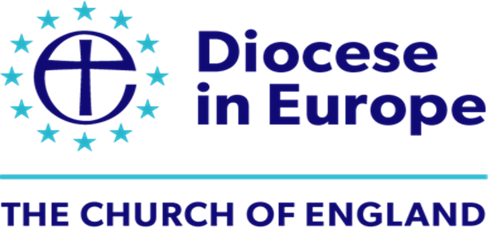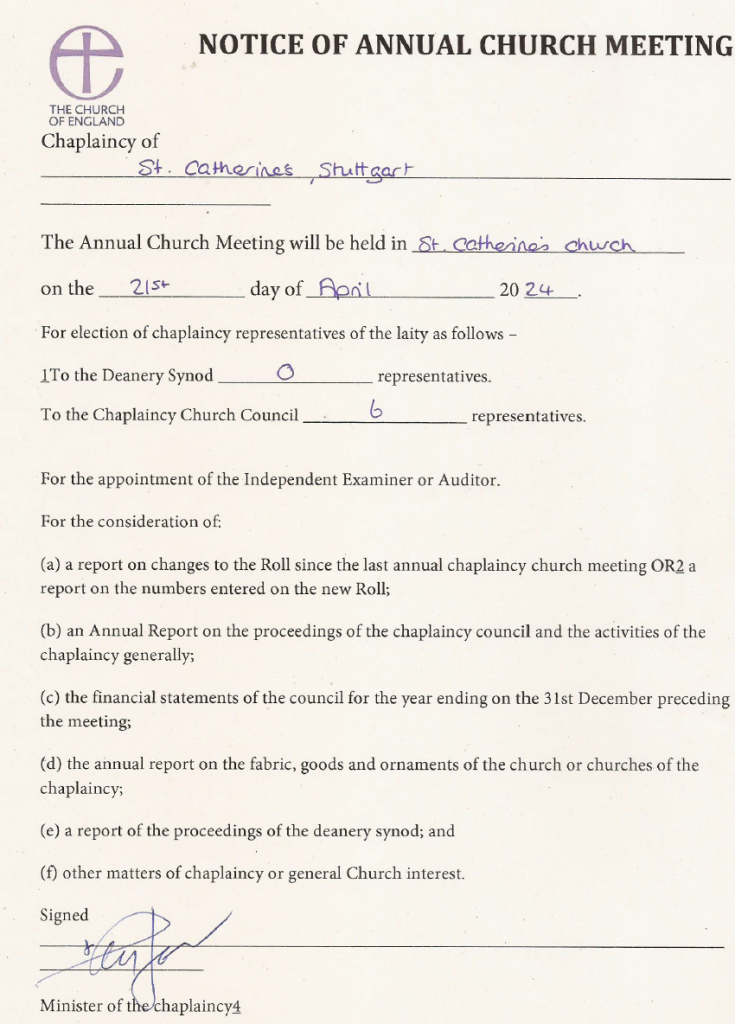sent by Andrew Caspari Diocesan Sec
As previously notified I am pleased formally to confirm that arrangements are now in place for key meetings in the Diocese along with the admission of Churchwardens to be held electronically over the coming months. The signed Bishop’s Instrument enabling this is attached with explanatory notes. Thanks are due to our Registrar for his work in preparing the documents.
- Annual Chaplaincy Meetings can now be conducted online and the deadline for holding these is May 31st 2021. This extends the date this year from that in the Diocesan Constitution and is in line with Diocese in England.
- Votes in any contested election must be conducted by correspondence as previously detailed and not by use of tools such as zoom polls.
- Provision is made for the admission of churchwardens to be conducted electronically up to August 31st 2021.
- Other formal meetings in the Diocese can be held electronically up to December 31st by virtue of this instrument.
Here are the notes sent last year about the conduct of electronic annual meetings which may be helpful. If you have any questions please get in touch with me or with your archdeacon.
Time and location of annual meetings
- It remains the recommendation that, if a chaplaincy is able to stage an in person meeting safely and effectively that remains the best thing to do.
- If a physical meeting is not possible then due notice must still be given in accordance with the CRRs.
- When giving notice of an online meeting it is important to be clear about how a person may participate in any meeting, and also how nominations may be made in the event of elections taking place. Chaplaincy secretaries are encouraged to include a note stating that, “nominations may be submitted by email to the Chaplaincy Secretary and should include the names of the proposer and seconder”.
- There is no specified online platform to be used but attendance is generally defined as being able to hear and be heard and as far as possible to see and be seen.
- This provision relates to the present year, 2021. We hope for normal arrangements to apply once more in 2022.
The Agenda
- Nothing is changed with relation to the business of the annual meeting which should be conducted in the normal way.
Voting and elections
- Voting on simple resolutions can be conducted online. The process should mirror, as closely as possible, that which would happen at an in-person meeting. It is for this reason that it really helps if attendees can be visible on the online platform if at all possible. The voting process in these cases should be defined by the chair of the meeting.
- In the event of a contested election (more candidates are nominated than there are posts to be filled) then this does not take place at the meeting. These elections will be held by correspondence (email or post).
- The meeting will decide who the presiding officer for the election shall be. The Chair can be the presiding officer.
- The precise process of the election (email, post, dates) is decided by the presiding officer. Online voting tools such as the polling function on Zoom are not reliable or accepted. The electorate is only comprised of those who are both in attendance at the meeting when the election is called and who would normally be eligible to vote. (This is apart from in chaplaincies that have already agreed at a previous annual meeting to hold postal votes in which case that will be normal practice). It is recommended that the secretary has a copy of the electoral roll to hand during the meeting so they can record who is in attendance and therefore which members constitute the electorate.









